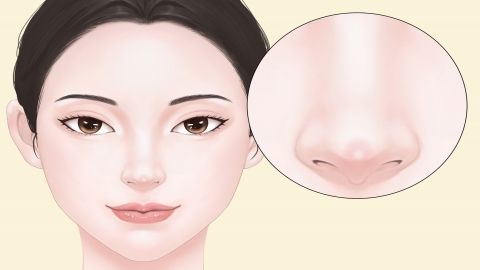What are the risks and complications associated with rhinoplasty?
Generally, as a common facial plastic surgery, rhinoplasty may involve potential risks including local infection, implant displacement or exposure, nasal deformity, nasal skin problems, and nerve damage. A detailed analysis is as follows:

1. Local infection: Rhinoplasty is an invasive procedure. If sterilization during surgery is inadequate or postoperative care is improper, local infection may easily occur. In the early stages, infection may manifest as redness, swelling, and pain in the nose; as the condition progresses, symptoms such as fever and pus discharge may appear, which can severely affect normal tissue recovery in the nose.
2. Implant displacement or exposure: If the implant used in rhinoplasty is improperly positioned, insufficiently fixed, or subjected to external trauma after surgery, implant displacement may occur, resulting in nasal asymmetry or a crooked nasal bridge.
3. Nasal deformity: Improper surgical techniques, such as unsuitable carving of the implant or inaccurate placement of cartilage grafts, may lead to undesirable nasal shape after surgery, such as a nasal bridge that is too high or too low, an overly sharp or drooping nasal tip, or asymmetrical nostrils, which can affect overall facial aesthetics.
4. Nasal skin problems: Various skin issues may occur after rhinoplasty. Continuous pressure from the implant may cause thinning of the local skin, lightening of skin color, or even skin necrosis. Additionally, some patients may experience allergic reactions such as itchy skin and swelling due to hypersensitivity to materials used during surgery.
5. Nerve injury: The nasal area contains a rich network of nerves. Improper surgical manipulation may injure nasal nerves, causing symptoms such as numbness, reduced sensation, or abnormal sensitivity in the nose. Most nerve injuries gradually recover within a period after surgery, but severe injuries may result in long-term sensory abnormalities.
It is recommended that individuals considering rhinoplasty fully understand the surgical risks beforehand, choose reputable medical institutions and experienced surgeons, communicate thoroughly with the surgeon, and develop an appropriate surgical plan. Postoperatively, patients should strictly follow medical advice for care, avoid trauma to the nose, and keep the nasal area clean and dry to reduce the likelihood of complications.







